#assyrian
Explore tagged Tumblr posts
Text
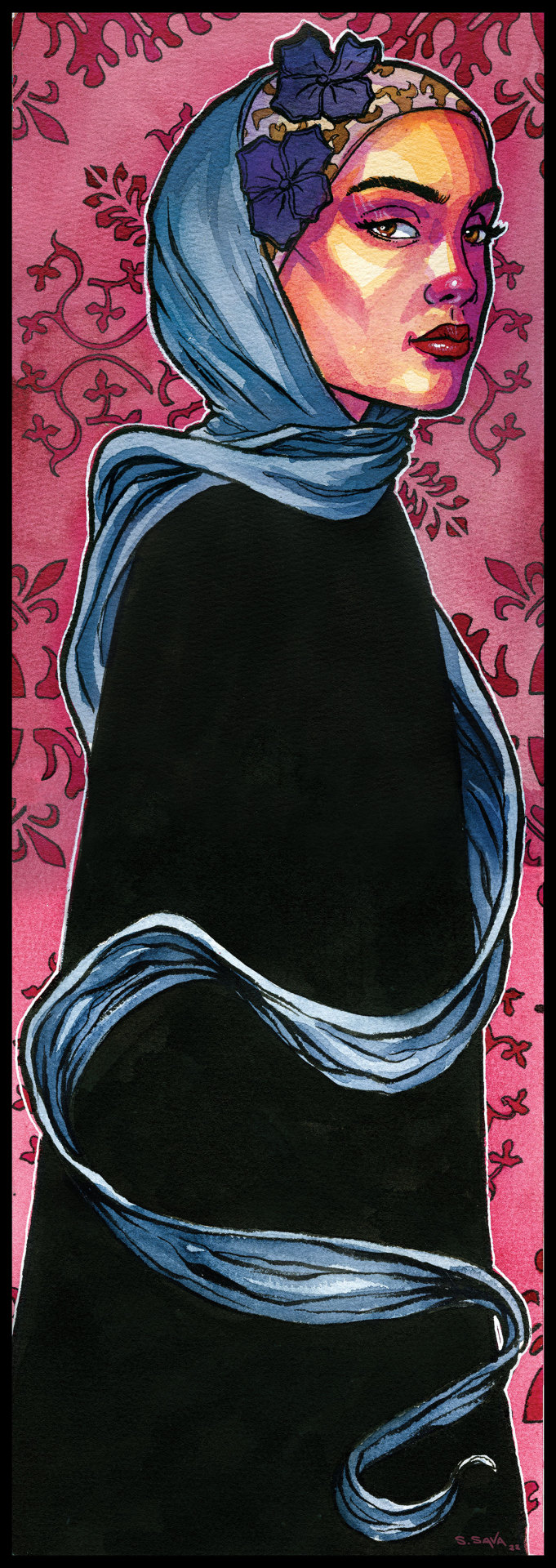
What does the word Genocide mean to you?
For me... the word Sayfo comes to mind.
Sayfo is the word we use for the Assyrian genocide.
In 1915, my grandfather fled his village of Charbash near Urmia in Iran when he was just 11 years old.
The Ottoman Empire took the land from the Assyrians. The indigenous people native to Mesopotamia (where modern Iran, Iraq, and Turkey exist now).
Over 250,000 Assyrians were wiped out by the occupying Ottoman Empire.
Half of the entire population of the remaining indigenous people.
The rest fled for their lives.
My grandfather and grandmother, being two that, thankfully, made it to New York.
Now, Assyrians have no homeland. No country.
An entire ethnic group that has been around for around 3,000 years almost completely wiped out of existence by an empire that no longer exists.
It's just so senseless.
This painting I did of a woman in a Hijab. I have posters of them on my site.
ssavaart.com
All of the proceeds from the sale of this poster is going to Doctors Without Borders.
I'll sign and ship each and every one of them.
I know it's not much. It won't stop a genocide.
But maybe... just maybe... 100 years from now someone's grandchild will be alive and they can tell the story of THEIR people... and what happened to them.
Sending Big Hugs from the Hobbit Hole. ♥♥♥
Scott
#art#artists on tumblr#traditional art#drawing#watercolor art#watercolor#art nouveau#assyrian#genocide#palestine#free gaza#doctors without borders
2K notes
·
View notes
Text
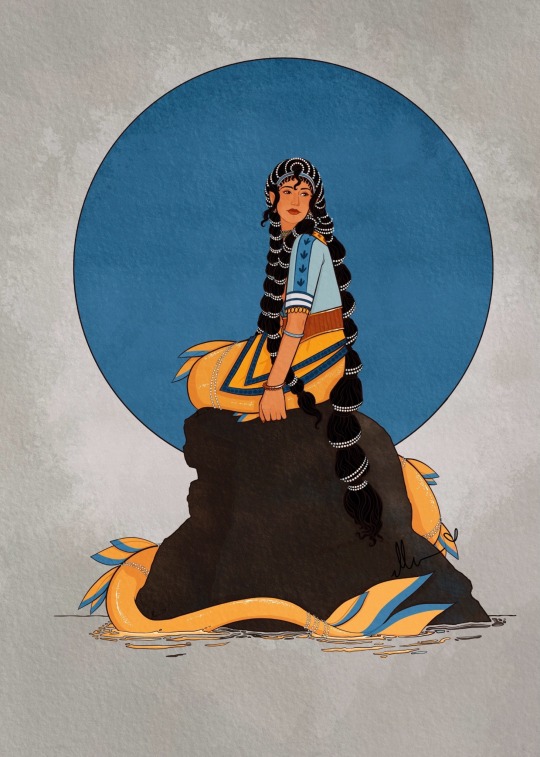
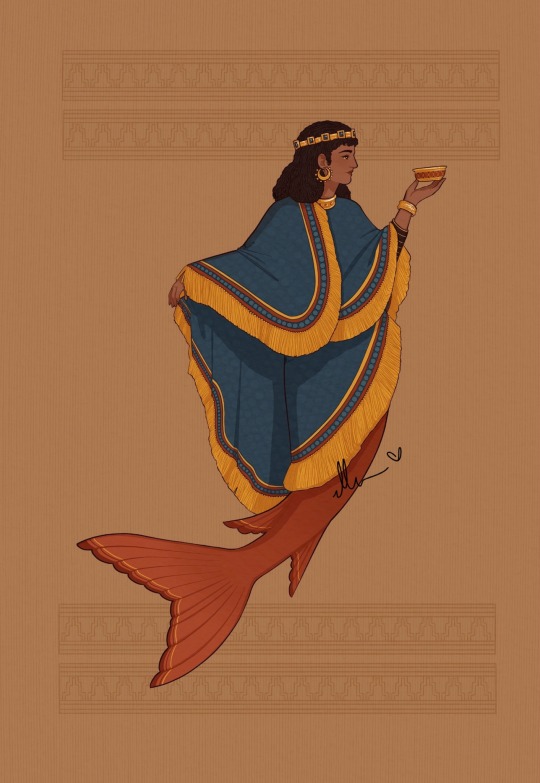
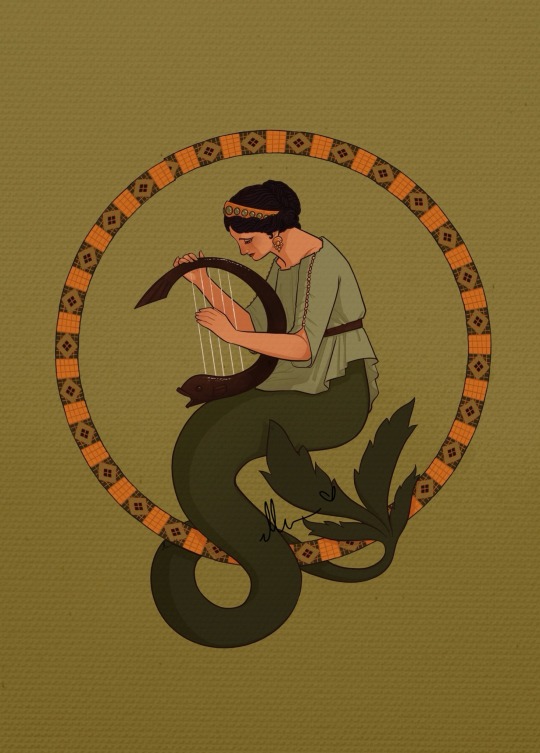
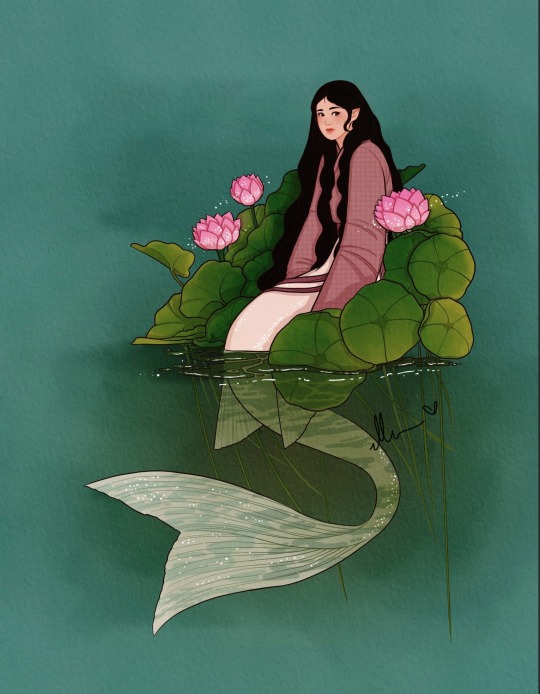
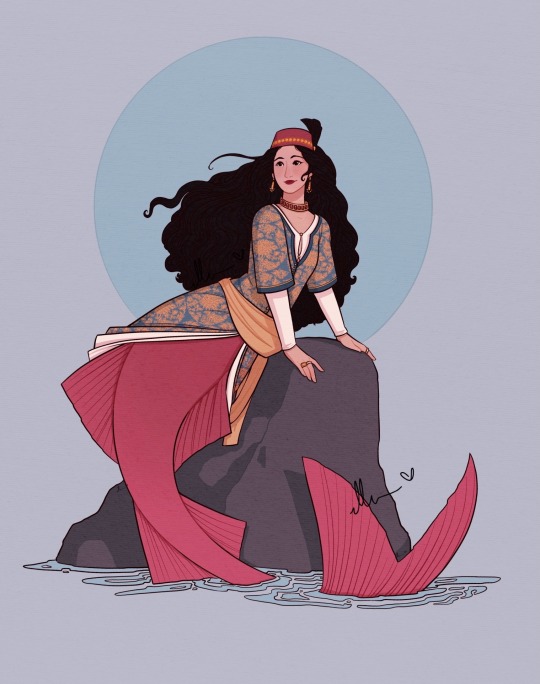
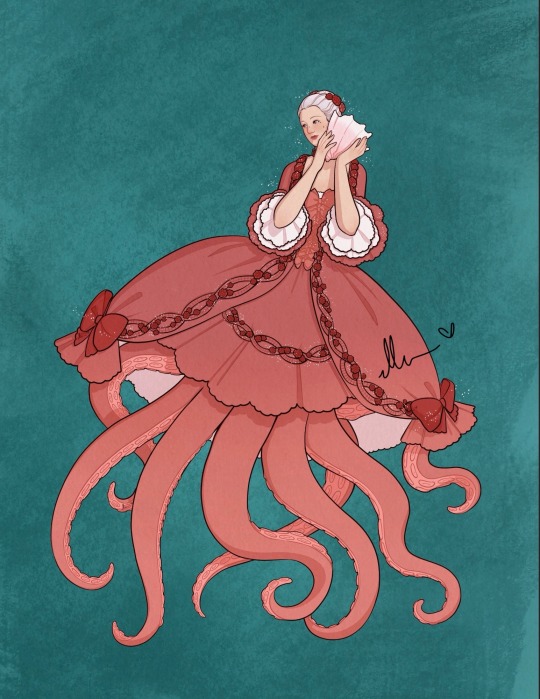
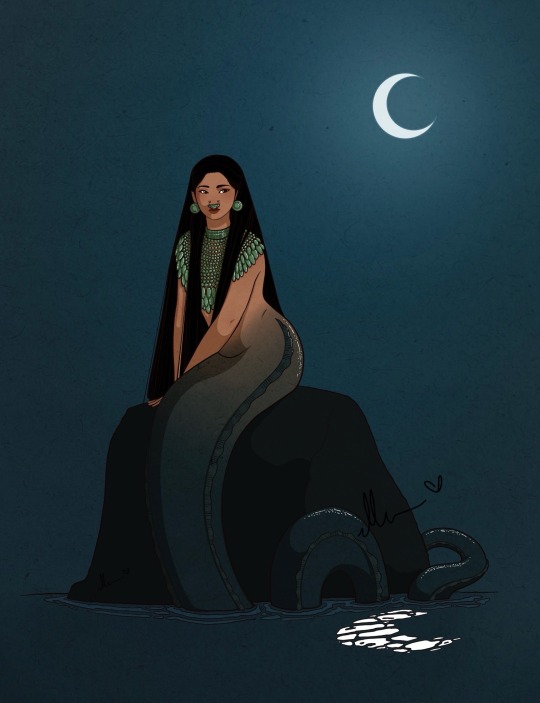
The seven new historical mermaids for Mermay 2024!
Here's the new set for Mermay 2024! What do you think? Which is your favorite? <3
I am the artist! Do not post without permission & credit! Thank you! Come visit me over on: instagram, tiktok or check out my coloring book available now \ („• ֊ •„) /
https://linktr.ee/ellen.artistic
#historical mermay#historical mermaid#mermaid#ellen artistic#ellenart#digital illustration#aztec#assyrian#rococo#ottoman mermaid#goryeo dynasty#ancient roman#minoan
2K notes
·
View notes
Text

Assyrian alabaster relief of an Eagle-Headed Winged Figure from the ancient city of Nimrud, dating back to the 9th century BCE. The Pergamon Museum, Berlin, GERMANY.
Photo by Babylon Chronicle
2K notes
·
View notes
Text

Furniture element carved in the round with the head of a roaring lion. Assyrian. (Iraq). 9th to 8th Century BCE.
The Metropolitan Museum of Art.
#the metropolitan#the metropolitan museum of art#Assyria#Assyrian#Assyrian history#ancient culture#ancient history#art#culture#history#middle eastern history#Iraq#animals in art#lion
308 notes
·
View notes
Text

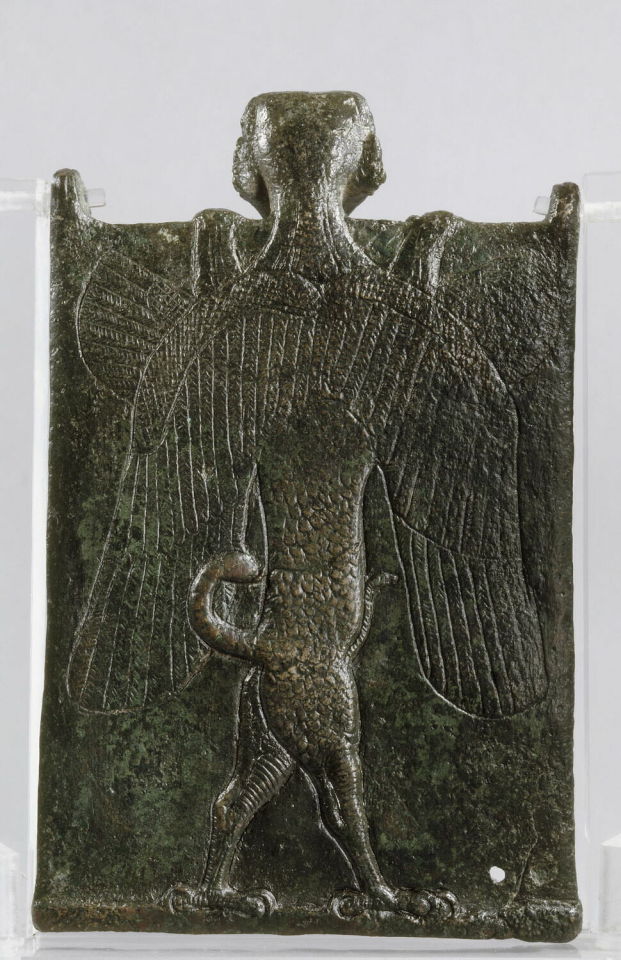
~ Plaque of conjuration against the Lamashtu, called "plaque of the underworld" or Hell Plate.
Period: Neo-Assyrian (1st half of the millennium)
Place of origin: Assyria
Medium: Bronze
#ancient#ancient art#history#museum#archeology#ancient sculpture#ancient history#archaeology#assyria#assyrian#plaque#Lamashtu#conjuring#underworld#hell plate#Neo-Assyrian#bronze
2K notes
·
View notes
Text

Assyrian dancers, Iraq, by Eduard Pröls
#assyrian#iraq#asia#west asia#folk clothing#traditional clothing#traditional fashion#cultural clothing
840 notes
·
View notes
Text
Assyrian Miku
Clothes are based off where my people are from. I'm of the Tyrai tribe, specifically Ashitha :)) just a quick doodle

212 notes
·
View notes
Text
To anyone interested in learning about Artsakh, its history and the struggle of Artsakhi Armenians for freedom and self determination, I suggest checking out Learn For Artsakh initiative (@/learn4artsakh on Instagram).They share a lot of information on these topics and spotlight the interconnection of violence inflicted on the indigenous groups in the region by the colonizing powers.
They also have an e-library with free pdfs of many books written by Armenians about Artsakh as well as literature about DR Congo, Sudan, Palestine and other nations experiencing genocide (scroll down to the "Libraries Against Genocide" section).
#armenia#artsakh#gonna tag other countries/nations that have books and articles about them in the library too#palestine#sudan#dr congo#kashmir#tigray#circassian#assyrian#ezidi#yezidi#native american#first nations#they also add books to it so i suggest checking it from time to time to see if anything's new there#hopefully someone will find this useful
512 notes
·
View notes
Text

Flood tablet/Epic of Gilgamesh, from the Library of Ashurbanipal, Assyrian, 7th century BC
from The British Museum
#history#antiquities#art#ancient history#ancient art#cuineiform#epic of gilgamesh#ancient mesopotamia#assyrian
1K notes
·
View notes
Text

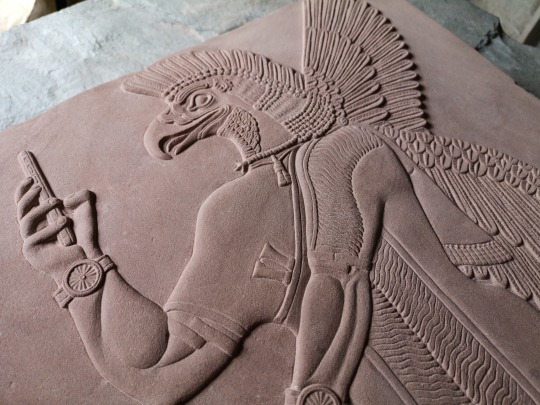

Out of place artifact.
Hand carved sandstone, based on an ancient Assyrian Winged Genie, but with a twist.
#carving#stone carving#art#traditional art#sculpture#assyrian#ancient history#archeology#history#ancient artifacts#mesopotamian art#mesopotamia#mesopotamian#genie#ancient art#ancientmonuments#antiquities#neoassyrian
516 notes
·
View notes
Text

One of two human-headed Lamassus, housed at the Pergamon Museum. The giant statues were originated from the Assyrian city of Nimrud, and they date back to 883-859 BCE. The Pergamon Museum, Berlin, GERMANY.
Photo by Babylon Chronicle
150 notes
·
View notes
Text

Judith and Holofernes by Horace Vernet
#horace vernet#art#judith#holofernes#religious art#biblical#bible#religion#history#jewish#assyria#assyrian#tent#christianity#christian#nineveh#nebuchadnezzar#mesopotamia#mesopotamian#sword#helmet#shield#heroine#european
71 notes
·
View notes
Note
Hi! What do you mean when you say assyrian? Like what is your cultural heritage like? What facets of historical assyria do you currently imbibe/try to emulate? I'm a bit of a history nerd and saw your rice post, so i thought i'd try and get some first person perspectives on this for a pet project of mine. (Anoning coz my main is a hornyblog)
hi, anon! assyrians are not just a historical empire- we are a contemporary ethnic group!

the assyrians are indigenous to the mesopotamian area, and are descended from the original assyrians with whom you are likely more familiar. however, the the assyrian genocide or sayfo that began in 1915 (connected to the armenian genocide + the greek genocide) caused many people to flee to other countries, including my mom's family, so there are more assyrians in the diaspora than in the "homeland" these days.
you may also see us referred to as syriac (with a C, not syrian), which some people prefer because it is a clearer differentiation between ancient assyrians and modern assyrians/syriacs. there are a few other terms like nestorian, aramean, chaldean, but not all of those are in common use these days either and mostly have specific use cases when it comes to language or religion (ex. nestorian mostly refers to members of the assyrian church of the east, but in some older texts it's used to describe assyrians regardless of specific church affiliation). generally people just identify as assyrian.
we did descend from ancient assyrians, and modern assyrian languages (suret) did come from old aramaic, but for me that connection has a pretty negligible connection to modern life, aside from occasionally pointing at assyrian statues in museums and saying "lol look it's us" to my brother. not sure if that's the case for other assyrians, but it isn't something i've seen personally.
if you've got an interest in history, however, you may enjoy our flag!
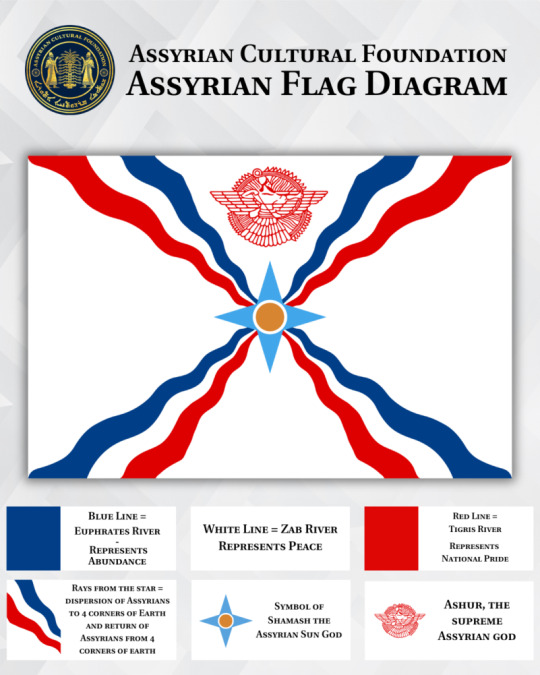
i swear i'm not mad that i spent ten minutes writing out my own description only to find that the ACF already had this nice helpful diagram my only addition is that the gold part of the symbol in the center represents the sun and the four-pointed star represents land, with the light blue representing tranquility. also that i could have SWORN there was something representing martyrs but apparently not lol. the one assyrian cultural artefact that doesn't reference martyrs i guess.
you can also find variants of this flag with the ashur emblem either outlined in gold or colored in with gold and blue, but afaik there's not a significant symbolic difference there
this flag was designed by george bit atanus as part of a competition started by the assyrian universal alliance in 1968, and adopted some time in the early 70s. i should note that the presence of ashur and shamash on this flag are more of a tribute to ancient assyrians as part of our history as opposed to a current religious reference, as assyrians are overwhelmingly christian.
i ended up writing a lot more for this than i thought i would and now i don't know how to end this post lol. uhh take this screenshot from the "assyrian people" wiki page that always makes me laugh a little bit
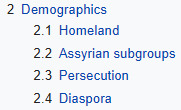
like yes we have been persecuted enough for it to be a whole section on our wiki page ✨ #flex #winning
116 notes
·
View notes
Text
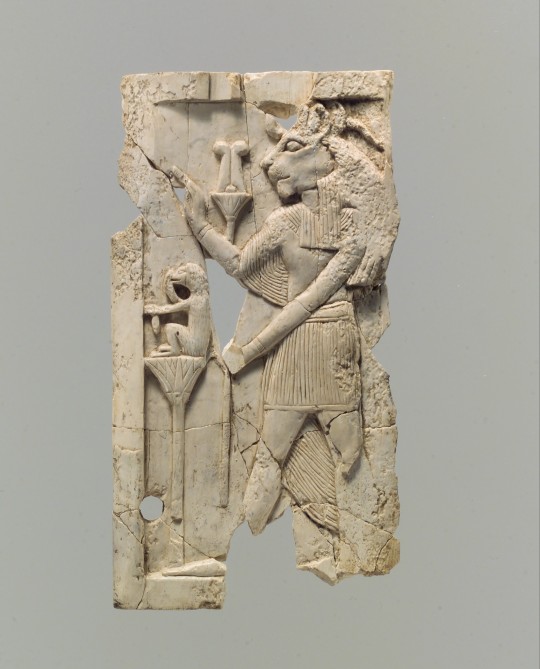
~ Furniture plaque carved in relief with lion-headed figure.
Period: Neo-Assyrian
Date: ca. 8th–7th century BC.
Place of origin: Mesopotamia, Nimrud (ancient Kalhu)
Culture: Assyrian
Medium: Ivory
#ancient#ancient art#history#museum#archeology#ancient sculpture#ancient history#archaeology#mesopotamia#Assyria#neo Assyria#assyrian#nimrud#kalhu#lion#plaque#furniture plaque#ca. 8th century B.C.#ca. 7th century B.C.
968 notes
·
View notes
Text

I think about this a lot
#immigration#refugee#iranian#immigrant parents#west asia#mena#swana#north african#middle eastern#armenian#Palestinian#Lebanese#latinx#Persian#Syrian#Afghan#Iraqi#Kurdish#Assyrian
55 notes
·
View notes
Text
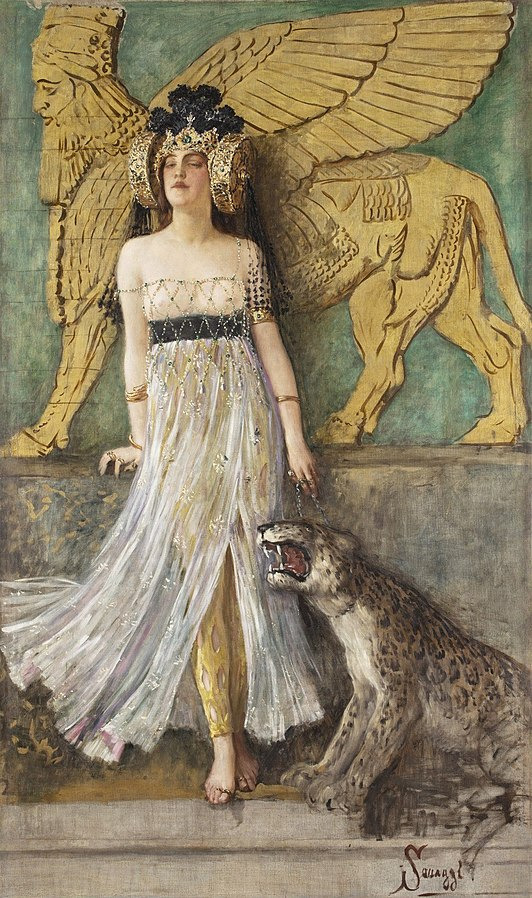
Cesare Saccaggi (1868-1934) "Great Semiramis, Queen of Assyria" (c. 1905) Oil on canvas, gold and precious stones The myth of Semiramis has its roots in late antiquity. Historiography, religion, art and literature have contributed to passing on different and contradictory legends linked to her figure over the centuries: some recognize her as the enlightened Assyrian ruler Shammuramat, wife of King Shamshi-Adad V and regent of his son Addu-Nirari III--to whom we owe the realization of the hanging gardens of Babylon.For others, Semiramis is the daughter of a nymph, abandoned in the desert and then fed by doves - the 'daughter of the air', according to Calderón de la Barca and Carlo Gozzi. Or she is the daughter of the goddess Derceto and the Syrian Caistro, married first to Onne, then to King Nino, with whom she had a son who, according to tradition, when he became an adult, chased her from the throne and killed her. During her reign, Semiramis conquered Mesopotamia, Egypt and Ethiopia. Herodotus and Diodorus Siculus speak of her as a great and good sovereign.
#paintings#art#artwork#painting#female portrait#cesare saccaggi#oil on canvas#fine art#italian artist#gold#precious stones#portrait of a woman#big cat#animals#costume#costumes#history#mythology#assyrian#ancient assyria#aesthetic#aesthetics#white dress#dressess#early 1900s#early 20th century
452 notes
·
View notes